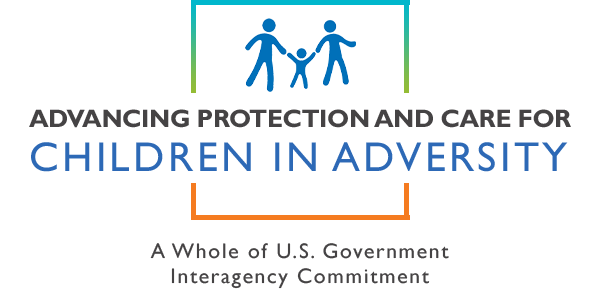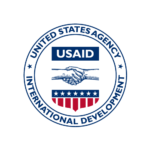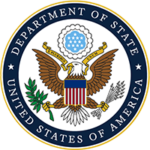The Global Child Thrive Act Commemorates Its First Year in Action
By Suzie Galler, APCCA newsletter editor
January 2023

Jennie, a community health worker in Gakenke District, Rwanda, demonstrates positive parenting interventions to Jeanne. In 2021, USAID increased its investments in family strengthening initiatives that teach positive, responsive parenting skills as a critical step toward improving early childhood development in Rwanda and other countries. / Amy Cotter, USAID
“There simply is not a more pivotal time than now to strengthen U.S. leadership in early childhood development.” — Texas Rep. Joaquin Castro, bill co-sponsor
Uganda, Joseph learns that playing with his children is critical to their cognitive, social, and emotional development. In Rwanda, Jeanne learns how to cook nutritious meals for her family and practice positive parenting. And, in Cambodia, 4-year-old Sreyno learns how to walk for the first time on new prosthetic legs. These are the types of life-changing interventions being implemented and expanded in line with the Global Child Thrive Act, which was officially enacted into law on Jan. 1, 2021.
This landmark legislation co-sponsored by a bipartisan group of lawmakers, reinforced the U.S. Government’s commitment to advance early childhood development (ECD) worldwide, focusing on early learning and physical, cognitive, social, and emotional development of children up to age 8. These kinds of interventions have become increasingly urgent during the global pandemic.
“Children are more vulnerable than ever before. Over 250 million children are at risk of impaired development due to the impacts of poverty, poor nutrition, and inadequate learning — threatening children’s ability to thrive and countries’ future success,” Castro noted when the bill passed. “Sadly, COVID-19 and its variants continue to negatively impact the global community, further stressing the need for these fundamental concerns to be addressed in a timely, yet sustainable manner.”

Members of a parent-child activity group run by UNICEF partner Samatapheap Khnom Organization learn how to use games to interact with their children as part of a Strengthening Child Protection Program in Phnom Penh. / Sophea Phok, UNICEF
Ensuring that every child can survive, thrive, and reach their full potential with dignity is central to long-term national development. Strengthening the capacities of children and the families who love and care for them is one of the best investments a country can make to eliminate extreme poverty, boost economic growth, and promote a peaceful society.
USAID is leading this effort and over the past year met regularly with the Thrive Coalition, a “coalition of coalitions” of more than 40 independent organizations and individuals dedicated to optimizing U.S. support for ECD.
A top priority has been to develop implementation guidance for the law. On target to be completed this spring, this practical tool will assist USAID Missions and others across the government in enacting the law’s requirements and measuring efforts.

A social worker for the Partnership Program for the Protection of Children network in Cambodia conducts a home visit to check on the progress of one of the families in her care. / World Learning
“It’s exciting to celebrate the progress we’ve made over the past year in initiating this landmark legislation, especially given the added challenge of doing so during the pandemic,” stated Rebecca Levy, the U.S. Government’s acting Special Advisor for Children in Adversity.
“As fathers, we understand that nurturing, supportive interactions early in life are critical to helping our kids reach their full potential.” — Sens. Roy Blunt and Chris Coons, bill co-sponsors
USAID has already made substantial progress in addressing the law’s objectives.

A child plays with her favorite toys as her foster father looks on. Learning through play is a critical part of healthy interaction between parents and children, and one of the pillars of early childhood development being championed through the Global Child Thrive Act. / Buthdy Sem, UNICEF
EXPANDING RESPONSIVE PARENTING AND FAMILY STRENGTHENING PROGRAMS
USAID health, nutrition, and protection programs in Rwanda, Uganda, Senegal, Cambodia, and Mozambique support parents and caregivers by:
- teaching positive interactions and early learning;
- conducting in-home visits by community-based volunteers to promote positive parenting practices; and
- discouraging harsh punishment of children.
The Agency is also helping to strengthen the enabling environment for ECD at the national and sub-national levels by supporting family- and child-friendly laws and policies, and supporting inter-ministerial coordination.
PROMOTING EARLY CHILDHOOD CARE AND EDUCATION
In Zambia, Haiti, and Rwanda, USAID is investing in pre-primary programming that leverages home, school, and church to develop early literacy, social, and emotional skills. USAID also developed pre-primary indicators to measure early learning and developmental progress of children ages 3 to 6.
These interventions have demonstrated measurable success in improving child development, reducing domestic violence, and enhancing the potential for children’s long-term academic success.
Among families who participated in the Sugira Muryango program in Rwanda, parents used more positive parenting techniques; children’s health and development outcomes and families’ mental health improved; and families experienced less intimate partner violence and harsh discipline. In Uganda, a randomized controlled trial in the Responsible Engaged and Loving (REAL) Fathers program resulted in a marked drop in domestic violence, better communication between partners, and more gender equitable norms around caregiving, with young fathers almost three times as likely to engage in father-child interaction activities.
“It is of the utmost importance that we help other countries help their children. As we all know, focusing on children is focusing on our future.” — Pennsylvania Rep. Brian Fitzpatrick, bill co-sponsor

Left: Three-year-old Mali’s mom receives nutrition counseling and positive parent coaching from Family Care First/REACT partner Cambodian Children’s Trust. Programs like the USAID and European Union-funded Family Care First/REACT promote nurturing care for early childhood development in line with the Global Child Thrive Act. / Right: Four-year-old Sreyno is learning to walk with her new prosthetic legs thanks to the USAID-funded Children’s Future International under Family Care First/REACT in Cambodia. / Cambodian Children’s Trust; Children’s Future International and Family Care First.
MOVING FORWARD
With USAID’s expertise and support from our partners both in and outside of government, the world’s children have hopes for a much brighter future. Key priorities include intensifying efforts to ensure parents, caregivers, and early childhood care and education providers have the skills, guidance, and resources to provide sustainable, nurturing care.
There is much work ahead, but the potential for achieving these goals has increased exponentially thanks to this significant piece of legislation that prioritizes the well-being of our youngest global citizens.







